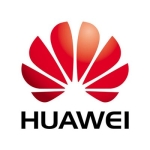What is most valuable?
We went through a whole data center refresh cycle and one of the things is that we needed to look at our disk system. Everything was for spinning disks, so we decided to make the leap to an all SSD data center. We brought in all the competitors, went through an RFP process and 3PAR came ahead. Some of the main things, for us, that we were looking for was the Veeam integration, i.e., the ability to set I/O limits (floors, ceilings, etc). That was the one thing that we were missing and the customer experience was suffering because of it; we were having all these I/O bottlenecks so we were spending more time having the disk manage us, rather than us managing the disk. It was a huge struggle for us.
A little bit of a background about us. UBC is the largest university in Western Canada, we have over 6000 VMs and what we do is Infrastructure as a service for all the higher education in British Columbia. That is around 25 or 26 other institutions, so they look at us for their infrastructure and we provide it. We're not for profit so cost is really important to us because it's publicly funded and it's the tax payer's money.
We wanted to make sure that we found the balance of the experience, cost, supportability for a small team to do this and 3PAR came out ahead with that. It wasn't just the technology, it was, also the relationship that we had with HPE over the years. We don't really have time to fiddle around with things because we're a small team we just want to get to the point and move on and do the next thing. Even though we're not for profit and we're a university, the customers still have the same demands as a bank in all this; they're servicing students and students are young people who just want to click on things, and they just want things instantly as they've been trained with an iPhone (you click, download an app and it just works). They don't have the patience so that trickles down to our team, which then trickles down to the vendors. It's like show us what you can do and go through the list if it doesn't work, then it's out.
The other important thing, in my opinion, is that the relationship is also very important. Technology problems you can be overcome, but relationships issues with the sales teams and resellers really can't. If you have a poor relationship and no matter how well the technology works, that's still going to impact it. HPE has been a partner with us (we do have a lot of partners), but they have been a loyal partner with us and really wanted to know what our problems were and how to resolve them. They get down to the point, such as how do we solve your problems and they understand when we went through it. It doesn't feel like we're being sold, but instead like we're kind of working together.
What needs improvement?
The one thing that we've always struggled with are the file sizes. With our competitor, we have had issues with the file sizes (I'm talking about the VMDK sizes) and how big a drive can be. HPE 3PAR, still, has a limit of 16 terabytes for VMDK limit and I think there is more to do in this aspect. There are ways to go around it but we still want DDUP and the compression functionality, if we want to turn those on we have to stay at 16TB. We're working with them on that and it is our biggest hurdle right now. Five years ago, 16 terabytes was big, but not anymore, i.e., not with current file servers. We don't know what the users are doing on the other end, because it's the Infrastructure as a service so we just get the feedback. I want to make a 64 terabyte drive and we need to work through this right.
For how long have I used the solution?
Actually, we're new with users of the HPE 3PAR solution, this is our first 3PAR and we have just acquired it three months ago.
What do I think about the stability of the solution?
We're really happy with the stability of the product. Everything's self-service, so our whole cloud-front is fronted by the vCloud Director. The goal with this small team is self-service, so we just publish the new tiers and people start using the tiers. There haven't been any complaints. There are a few technical things with them, we think are to do with the software that we will work through with them, provide feedback, and see how it goes. It has actually exceeded in quite a few spots.
What do I think about the scalability of the solution?
It's VMware so they're all data stores, and data store moves are non-descriptive so we can just keep providing more data stores and then, the software figures out where to place the workloads. If the customers aren't happy with the current performance tier that they're on, then they can self-move to a higher tier. SSD's are coming down in price, it's a usable price range now and having an all SSD data center is actually functional.
How is customer service and technical support?
Technical support is good. It's the standard HPE support where you go through the tiers and if you've worked in IT for a while, you know to mention the words as how to move up. For example, you can ask for the duty manager and then you'll get escalated. However, we haven't got to that point yet. It's pretty new, I'm sure that with anything new we seem to push things to the limit, so it will get to that. I can't say anything negative about it.
How was the initial setup?
They sent us a team to work with us for the setup process. They still kind of managed the firmware and upgrades right now. It is pretty new and simple to use, it wasn't hard to figure it out. They sent one of their post-sales SEs to come in and go through the training. In two days, the team kind of got it. It's mostly that one of the goals to go back to a small team is we want something that is set and then to forget about it; we don't want to sit there all day and manage it. We want to put it on the floor, be able to do capacity planning, alert all those pieces but we don't want to manage it.
Which other solutions did I evaluate?
Traditionally, we were using NetApp. We did look at IBM, Lenovo, Nimble and all of them. Actually, Nimble didn't come to the table, they missed it; so IBM, Lenovo, and Dell are the solutions we looked at.
They missed the thing, it's hard to describe because earlier we used to strongly believe strongly in just using NFS for ESX since it was easier to manage. However, with SSDs, NFS actually puts in a little bit of latency in it because you have to change that protocol thing. When we wrote the IRP, we made sure that everybody could reply and I think they missed it. There was some sort of miscommunication, so basically, everybody was on that chart.
When we are looking at a vendor, it's a mixture of everything. Basically, for our IRP, the feedback from the vendors was good, this is our problem how would you solve it. These are mandatory and minimum requirements whilst selecting a vendor, these are highly desirable, and we broke it all down so that they could fill it all in. The feedback was good, it was easy to fill out but there were somethings that some players could do. Veeam was big and we use them for all our stuff, but not everybody integrates with Veeam. The alerting capacity planning and all those things were a big thing for us too.
What other advice do I have?
We're not fully pushing the envelope on it, but there are no complaints. Everything's good, the team has been good from the support to the setup to the post-support setup, to we've actually opened a ticket to do their firmware upgrade part. They gave us the plan and broke it down as to what they're going to do and when they're going to do it. Things have been good.
Disclosure: PeerSpot contacted the reviewer to collect the review and to validate authenticity. The reviewer was referred by the vendor, but the review is not subject to editing or approval by the vendor.










